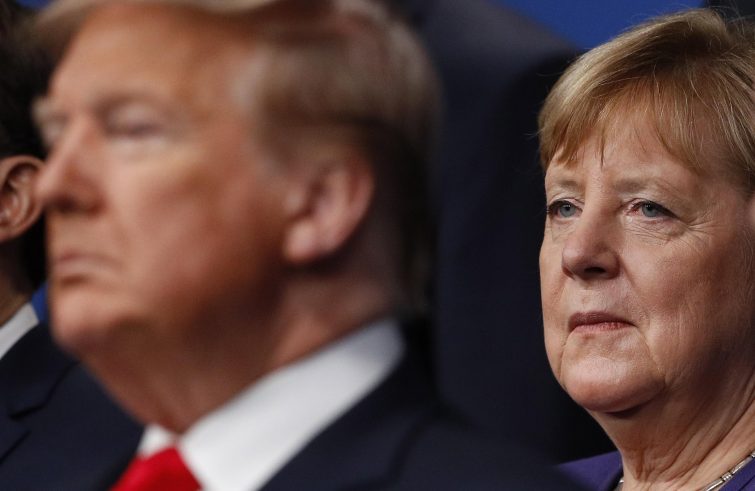
The year 2021 will be characterized by the stepping down from office of two political leaders embodying two different interpretations of their respective roles: Donald Trump, now former president of the United States, and Angela Merkel, Chancellor of Germany for a few more months. Two visions, two styles, two personalities, not only different but opposed, as are black and white, water and fire. Trump sought a second presidential term, but he lost the election after four years of a sometimes tragicomic presidency. He contested the results and disputed his opponent’s victory, filing scores of lawsuits involving an equal number of lawyers, combined with fake news on the subject of “my re-election was stolen.” His most vocal supporters attacked the Capitol, the very symbol of democracy. He was conspicuously absent from his successor’s inauguration ceremony, President-elect Joe Biden.
Trump has thus been widely accused of denying the very tenets of democracy, developed in the course of the past two centuries.
Angela Merkel was elected German chancellor in 2005, was re-elected in 2009, 2013 and 2018, and is now set to step down voluntarily after over 15 years, despite polls indicating a popularity of over 70%. This is clearly a very rare situation, especially in a time of crisis.
Trump frequently attacked his opponents and any other dissenting voice; Merkel showed respect for her opponents. Trump sparked off tensions more often than not; the German Chancellor is normally more concerned with brokering and mediating solutions through talks. On the issue of migrants, the US president attempted to close borders and erect walls; Germany has taken in countless refugees in recent years. Finally, Trump displayed contempt for democratic institutions;
Not only does Angela Merkel respect her country’s federal democracy, in fact she is a player in the complexities of EU institutions
with the purpose of advancing EU integration via Germany’s political and economic “leverage”.
The stark differences between these two political leaders could be pointed out further. And at the same time, through them, two Western democracies confronted with a critical juncture could be compared.
In her private and public life, Angela Merkel testifies to the fact that democracy is a matter of trust: trust in representative institutions and in the men and women appointed to represent them; trust in a project of coexistence notwithstanding deep-rooted social and cultural differences.
Back in the 18th century, Montesquieu declared that democracy needs virtue. Virtue is not only about individual honesty, which is obviously necessary. Many ostensible democracies are crippled by their politicians stealing from the people, or taking advantage of them, as is the case in many African countries (sometimes even in European countries).
Virtue can also be found in the seriousness of a common project, in the ability to respond to the expectations of the people.
In this respect, the comparison between Trump and Merkel illustrates just how political action is above all a method. It is not a method nurtured through Twitter, but through patience, respect for diversity of opinion, and a relentless pursuit of unifying and beneficial approaches and decisions.
For believers, in particular, prayer must accompany political action, thereby fostering discernment.
Along these lines, a further comparison could be made between Joe Biden’s inauguration ceremony on 20 January and Donald Trump’s inauguration ceremony four years ago. We are thus reminded of the latter’s aggressive speech, and the new President’s appeasing address, and the room given to prayer. We watched top US politicians gathered in prayer. Far from reflecting weakness, this constitutes the political strength stemming from concern for the people, for the centrality of human dignity… It enshrines the opposite of public contempt for opponents, seeking consensus in a firm and respectful manner instead, with political action geared toward the common good.









